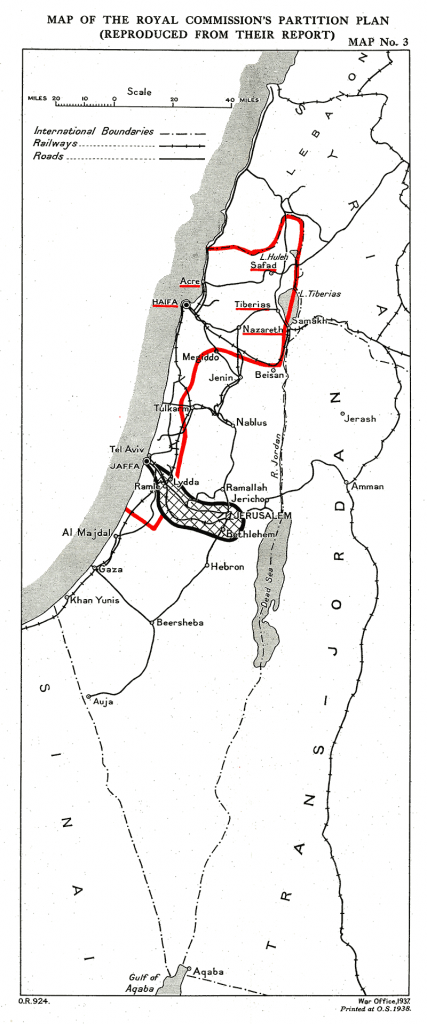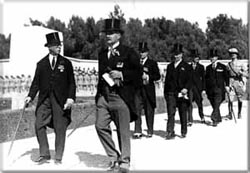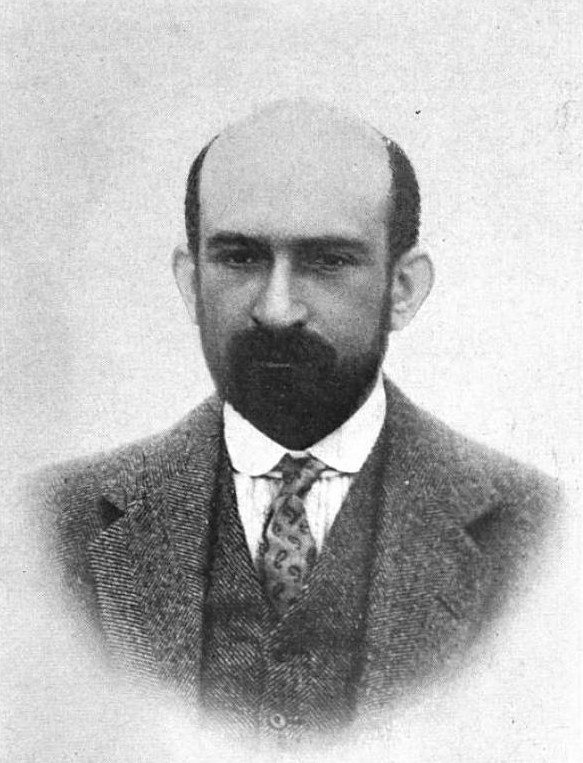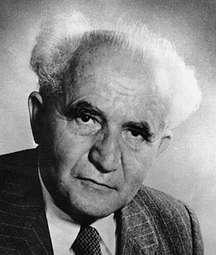 Continuing the series from Nur Masalha’s Expulsion of the Palestinians. . . .
Continuing the series from Nur Masalha’s Expulsion of the Palestinians. . . .
The Peel Commission released its report in July 1937 with British Government support. The Peel recommendations were to be the blueprint for future British policy in Palestine and opened the road towards a State (not just land) for the Jews. The commission declared that
- the national aspirations of the Arabs and Jews were irreconcilable
- An irrepressible conflict has arisen between two national communities within the narrow bounds of one small country. There is no common ground between them. Their national aspirations are incompatible. The Arabs desire to revive the traditions of the Arab golden age. The Jews desire to show what they can achieve when restored to the land in which the Jewish nation was born. Neither of the two national ideals permits of combination in the service of a single State.
- Palestine should be partitioned so that an Arab state was made up of Transjordan and the Arab part of Palestine and the rest a Jewish state
- If Partition is to be effective in promoting a final settlement it must mean more than drawing a frontier and establishing two States. Sooner or later there should be a transfer of land and, as far as possible, an exchange of population.
- the Jewish state would consist of one third of the including the most fertile regions, including the plain of Esdraelon, most of the coastal plain and the wholly Arab owned Galilee (Jewish population was 5.6% of the total at the time);
- the British would retain a corridor from Jerusalem to the coast;
- the Arab state would make up the rest, including the Negev desert;
- there would be an “exchange” of populations: 225,000 Arabs in the Jewish areas would “exchange” places with 1250 Jews — as a last resort this would be a “compulsory” move; this did not include the Arabs in Galilee — it was imagined that the Galilean Arabs would be encouraged to move voluntarily.
The full text of the report can be read online. (It’s an interesting read. It affirms the main themes this series of posts has been highlighting, especially the substantial and long-term Arab attachment to the land and their political aspirations in the wake of World War I.) I quote here its reference to the status of the Galilee because I find it especially interesting in what it tells us about long-term Jew-Arab relations prior to the dramatic changes from the 1920s onwards and the way the language of the report avoids the obvious implications for the future of an inevitable change of ownership and demographic shift (my bolding):
The proposed frontier necessitates the inclusion in the Jewish Area of the Galilee highlands between Safad and the Plain of Acre. This is the part of Palestine in which the Jews have retained a foothold almost if not entirely without a break from the beginning of the Diaspora to the present day, and the sentiment of all Jewry is deeply attached to the “holy cities” of Safad and Tiberias. Until quite recently, moreover the Jews in Galilee have lived on friendly terms with their Arab neighbours; and throughout the series of disturbances the fellaheen of Galilee have shown themselves less amenable to political incitement than those of Samaria and Judaea where the centres of Arab nationalism are located. At the “mixed” towns of Tiberias, Safad, Haifa, and Acre there have been varying degrees of friction since the “disturbances” of last year. It would greatly promote the successful operation of Partition in its early stages, and in particular help to ensure the execution of the Treaty guarantees for the protection of minorities, if those four towns were kept for a period under Mandatory administration.

Arab response to the report
Outrage. Violence, especially among the peasantry.

Zionist response to the report
The report gave the Zionists two key goals they had long been seeking:
- Assurance that a Jewish Homeland (as offered by the Balfour Declaration) would translate into a Jewish State;
- Approval for the transfer of the Arab population from that state.
As we saw in previous posts these are the two goals Zionist leaders (Weizmann, Shertok, Ben-Gurion) had been lobbying and working towards so hard for so long. But prudence remained important. It would not look good to be seen to be rejoicing too enthusiastically over the promise to transfer the Arab population from their areas.
Thus the Jewish Agency, of which Ben-Gurion was chairman, simultaneously attacked the partition plan in public as a breach of the Balfour Declaration promises (on the grounds that the Balfour Declaration had promised a Jewish home in all of Palestine), while privately seeking to negotiate with the British government for a Jewish state based on more advantageous positions. (p. 62)
In 1918 Ben-Gurion had called for a Jewish state that extended from the Litani River in the north to the Wadi Arish in the south and the Syrian desert as far as the farthest border of Transjordan in the east.
Weizmann made it clear to the British High Commissioner that the Jewish State borders being proposed by the Peel Commission were only temporary:
We shall expand in the whole country in the course of time. . . this is only an arrangement for the next 25 to 30 years. (Weizmann in a private conversation with the High Commissioner, A. Wauchope, 14 March 1937. Cited in Moshe Sharett, Yoman Medini, Vol. 2, p. 67)
Key to Success: Arab Transfer

It was the promise of the transfer of the Arabs that Chaim Weizmann considered the key to the success of the implementation of a Jewish state according to the Peel Commission’s recommendations. Twelve days after the release of the Peel report Weizmann told the British Colonial Secretary that
the whole success of the [partition] scheme depended upon whether the [British] government genuinely did or did not wish to carry out this recommendation [i.e. transfer of the Arab population].
Public discretion was still important. The British representative of the Mandate Commission at the League of Nations, Ormsby-Gore, had made it clear in August 1937 that any use of force in the transfer of the Arabs was ruled out. They were expected to move voluntarily.
Weizmann expressed his hopes most delicately in a letter to the Permanent Mandate Commission:
My colleagues and I attach great importance to this question, and we do not delude ourselves as to its difficulties. . . .
Of course, we do not propose to have recourse to constraint, or to exercise any coercion whatsoever: only those who wish will be transferred. . . . but we think that just as after the conquest of the Caucasus by Prussia, many Muslims preferred to emigrate to Turkey rather than remain under the domination of the ‘infidels’, so after the creation of the Jewish State, many Muslims and perhaps others will wish to leave. (The Letters and Papers of Chaim Weizmann, Vo. XVIII, no. 168, pp. 186-87)
Shertok’s Summersault

Recall Shertok’s warning that such a proposal would surely lead to “rivers of blood”. Shertok’s political opponents labeled Shertok an “appeaser” and a “compromiser” with respect to the Palestinian Arabs. (Does any modern day rhetoric sound familiar?) But the excitement of the Peel recommendations even swept Shertok along with sanguine (irony intended) hopes for future with a clean conscience. On 5 July 1937 after reading a telegram about the report Shertok addressed his Mapai Centre colleagues (my own bolding):
Many assumptions that have been made by the Commission will constitute very important assets for our political activities. Of these I will point out the matter of the population transfer. The Commission not only does not see something fundamentally wrong in removing people who have lived here for many generations: but it says to the Arabs that if there is a need to move out — they should move out. . . it points out that after the population transfer between Greece and Turkey, good relations once again prevailed between the two countries. (Moshe Sharett, Yoman Medini, Vol. 2, 5 July 1937, p. 239. On receiving the Commission report Shertok wrote Ben-Gurion saying one of its most important paragraphs was the “forcefulness in which they present the matter of population transfer“: ibib., 4 July 1937, p. 235)
Later, December that year, Shertok addressed a Keren Hayesod meeting:
Let us not raise difficult questions when we discuss the partition plan: Why it is impossible to purchase land in Eretz-Yisrael and why it is difficult to transfer Arabs from their places. . . . The transfer of the Arabs . . . could be through an agreement. Without an agreement this is entirely impossible. There is no need for there to be an agreement with each and every Arab, but there has to be an agreement with another government. In any event, this would not be by throwing people out while their property is being confiscated and without concern for new places for them. (ibid, 4 July 1937, p. 235)
Nur Masalha sums up what this means in reality:
Baldly stated the agreement would be collective but the expulsions individual. (p. 64)
Ben-Gurion’s Expansionist Ambitions

David Ben-Gurion had worked for this outcome and wrote in his diary on 12 July 1937:
The compulsory transfer of the Arabs from the valleys of the proposed Jewish state could give us something which we never had, even when we stood on our own feet during the days of the First and Second Temple. (Ben-Gurioin, Zichronot [Memoirs], Vol. 4, p. 297)
Ben-Gurion knew how hard the removal of the Arab population would be and was prepared for the Jewish state itself to carry out the task since he retained doubts that the British would have the stomach for such ethnic cleansing:
We have to stick to this conclusion in the same way we grabbed the Balfour Declaration, more than that, in the same way we grabbed Zionism itself. We have to insist upon this conclusion [and push it] with our full determination, power and conviction. . . . We must uproot from our hearts the assumption that the thing is not possible. It can be done. . . . We must prepare ourselves to carry out the transfer [emphasis original]. (Ben-Gurioin, Zichronot [Memoirs], Vol. 4, p. 299)
Ben-Gurion was a realist. He knew the Arabs would not voluntarily uproot themselves and transfer to the Transjordan despite the Pollyanish wording of the Peel report:
I see above all the enormous difficulties in uprooting, by foreign force, some 100,000 Arabs from the [Galilee] villages which they have inhabited from hundreds of years. (Ben-Gurioin, Zichronot [Memoirs], Vol. 4, p. 299)
The difficulties in Ben-Gurion’s mind were logistic, not moral. He did address the moral question in a letter to his sixteen year old son, however:
We have never wanted to dispossess the Arabs [but] because Britain is giving them part of the country which had been promised to us, it is only fair that the Arabs in our state be transferred to the Arab portion. (Ben-Gurioin, Zichronot [Memoirs], Vol. 4, p. 330-331)
At the same time Ben-Gurion expressed his hopes that the Jewish state would further extend into southern Lebanon:
The Christians of Lebanon could hardly exist without a Jewish state alongside them, and we are also interested in an alliance with Christian Lebanon. . . . Having Lebanon as a neighbor ensures the Jewish state a faithful ally from the first day of its establishment. It is not, also, unavoidable that across the northern side of the Jewish state border in southern Lebanon the first possibility of our expansion will come up through an agreement, in good will, with our neighbours who need us. (Ben-Gurioin, Zichronot [Memoirs], Vol. 4, p. 330-331)
By October 1937 Ben-Gurion was clear: in his mind transfer of the Arabs meant forcible expulsion, and the borders granted by the Peel Commission were only interim. The Jewish state had to expand still further, and by force:
We must expel Arabs and take their places. . . and if we have to use force — not to dispossess the Arabs of the Negev and Transjordan, but to guarantee our own right to settle in those places — then we have force at our disposal. (Teveth, Ben-Gurion and the Palestinian Arabs, p. 189, citing Military and Defence Establishment Archives, Giva’tayim. A censored version of the letter may also be found in David Ben-Gurion, Michtavim el-Pola Vehayeladim [Letters to Pola and the Children] (Tel Aviv: ‘Am ‘Oved, 1968). pp. 212-13)
Expectation of War
Clearly Ben-Gurion was not expecting the British army to do this for the Jewish state. It was to be accomplished by a Jewish army.
It is very possible that the Arabs of the neighboring countries will come to their aid against us. But our strength will exceed theirs. Not only because we will be better organized and equipped, but because behind us there stands a still larger force, superior in quantity and quality. . . . the whole younger generation of Jews from Europe and America. (Teveth, Ben-Gurion and the Palestinian Arabs, p. 189)
So we have seen that Ben-Gurion (as well as Weizmann and Shertok) clearly understood that the success of the Peel Commission’s plan — for a Jewish state alongside an Arab one — depended upon the transfer of the Arabs from the Jewish areas. Ben-Gurion had also made it clear to the British decision makers that he could only accept a Jewish state if the Jews themselves were given complete authority over Jewish immigration and Arab transfer. If the Arabs were to stay in the Jewish areas and comprising half the population from the outset, it was evident to all that their birth-rate would make it impossible for Jews to outnumber them by immigration alone. “Transfer” was the only option in the minds of the Zionist leadership.
Continuing . . . .
If you enjoyed this post, please consider donating to Vridar. Thanks!

3 thoughts on “Compulsory Arab Transfer Necessary for a Jewish State”